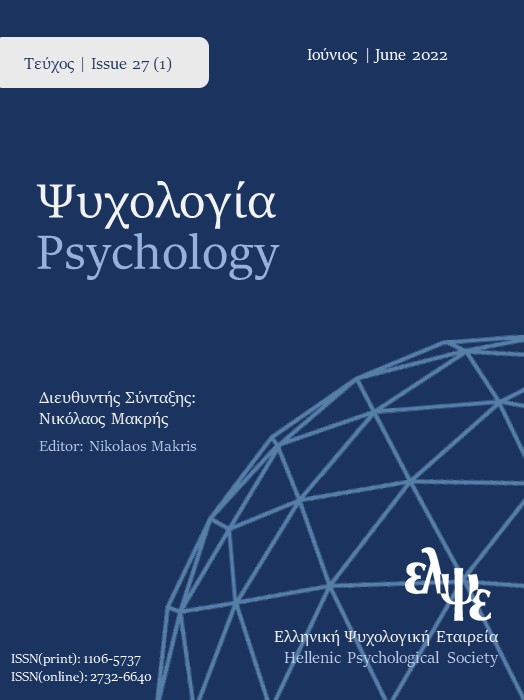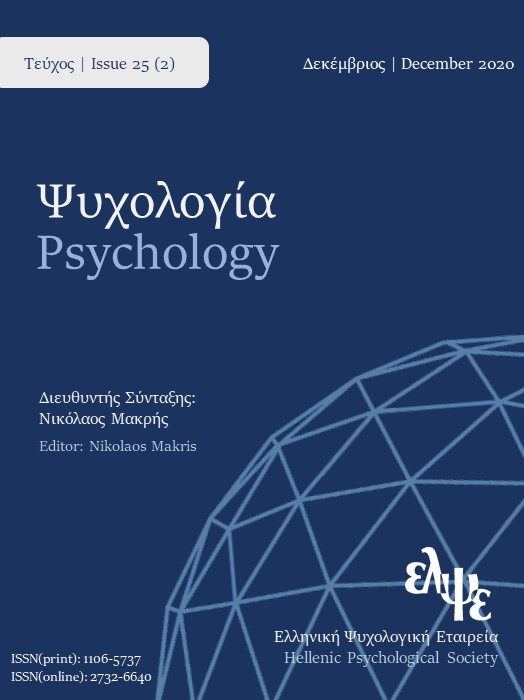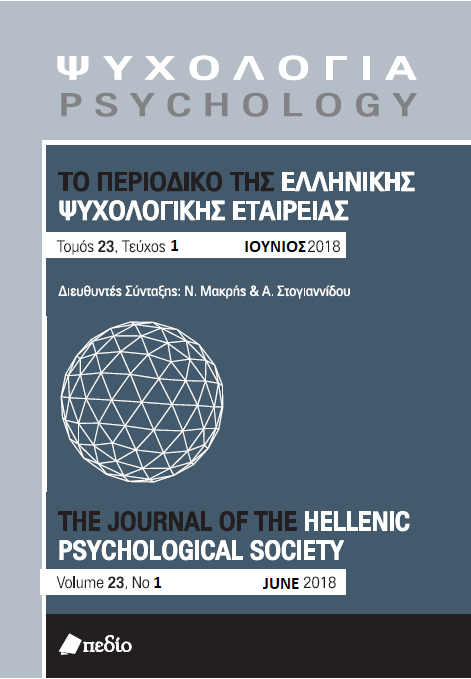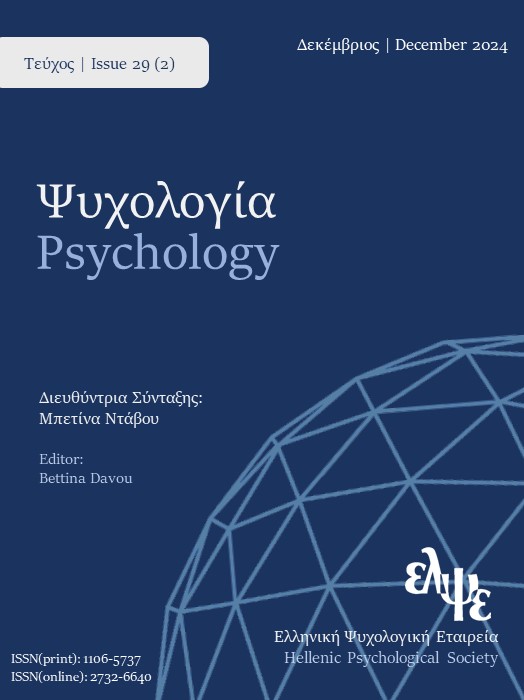Μετριάζει η πατρική αποδοχή την επίδραση της μητρικής απόρριψης στη θυματοποίηση σε προέφηβους; Μια βραχύχρονη διαχρονική μελέτη

Περίληψη
Η γονική απόρριψη αποτελεί ένα σημαντικό προβλεπτικό παράγοντα διάφορων παραμέτρων της κοινωνικής προσαρμογής των εφήβων, συμπεριλαμβανομένης και της θυματοποίησης από σχολικό εκφοβισμό. Παρά το γεγονός ότι η έρευνα που αφορά τη γονικότητα έχει σε μεγάλο βαθμό παραμελήσει τον ρόλο του πατέρα, υπάρχουν ερευνητικές ενδείξεις ότι η πατρική αποδοχή μπορεί λειτουργήσει προστατευτικά απένταντι στη μητρική απόρριψη. Ο σκοπός της παρούσας μελέτης ήταν η διακρίβωση της επίδρασης δεικτών της μητρικής απόρριψης στην θυματοποίηση, και στην εξέταση του κατά πόσο η πατρική αποδοχή μετριάζει αυτήν την επίδραση, σε ένα δια-πολιτισμικό δείγμα 846 (Mage = 12.63, SDage = 1.01, Ngirls = 403) προεφήβων από σχολεία της Ελλάδας (N = 471) και της Κύπρου (N = 375), στη βάση ενός βραχύχρονου διαχρονικού ερευνητικού σχεδιασμού (χρονικό διάστημα έξι μηνών). Οι συμμετέχοντες συμπλήρωσαν ερωτηματολόγια αυτοαναφοράς. Από τα αποτελέσματα διαφάνηκε ότι η μητρική απόρριψη είχε σημαντική επίδραση στη θυματοποίηση έξι μήνες αργότερα, ακόμα και με την προσμέτρηση της επίδρασης των αρχικών επιπέδων θυματοποίησης. Τα αποτελέσματα κατέδειξαν ακόμη ότι η πατρική αποδοχή λειτουργούσε μετριαστηκά ως προς αυτή την επίδραση. Πραγματοποιείται εκτενής συζήτηση των ευρημάτων και δίνονται εισηγήσεις για μελλοντικές έρευνες.
Λεπτομέρειες άρθρου
- Πώς να δημιουργήσετε Αναφορές
-
Χαραλάμπους Κ., Τάνταρος Σ., Γεωργίου Σ., & Σταυρινίδης Π. (2022). Μετριάζει η πατρική αποδοχή την επίδραση της μητρικής απόρριψης στη θυματοποίηση σε προέφηβους; Μια βραχύχρονη διαχρονική μελέτη. Ψυχολογία: το περιοδικό της Ελληνικής Ψυχολογικής Εταιρείας, 27(2), 8–20. https://doi.org/10.12681/psy_hps.31753
- Ενότητα
- ΕΙΔΙΚΟ ΑΦΙΕΡΩΜΑ

Αυτή η εργασία είναι αδειοδοτημένη υπό το Creative Commons Attribution-ShareAlike 4.0 International License.
Το περιοδικό ΨΥΧΟΛΟΓΙΑ έχει υιοθετήσει μία πολιτική Platinum open-access. Τα έξοδα υποβολής, επεξεργασίας ή δημοσίευσης των εργασιών καλύπτονται από την Ελληνική Ψυχολογική Εταιρεία. Τα πνευματικά δικαιώματα των δημοσιευμένων εργασιών προστατεύονται από την άδεια 'Creative Commons Attribution-ShareAlike 4.0 International'. Οι Συγγραφείς διατηρούν τα Πνευματικά Δικαιώματα και χορηγούν στο περιοδικό το δικαίωμα της πρώτης δημοσίευσης. Η άδεια αυτή επιτρέπει σε τρίτους, να χρησιμοποιούν την εργασία σε οποιαδήποτε μορφή, με την προϋπόθεση της διατήρησης των διατυπώσεων που προβλέπονται στην άδεια σχετικά με την αναφορά στον αρχικό δημιουργό και την αρχική δημοσίευση στο περιοδικό ΨΥΧΟΛΟΓΙΑ. Επιπλέον, κάθε διανομή της εργασίας οφείλει να γίνεται με τους ίδιους όρους διανομής, δηλαδή με την ίδια άδεια Creative Commons.








